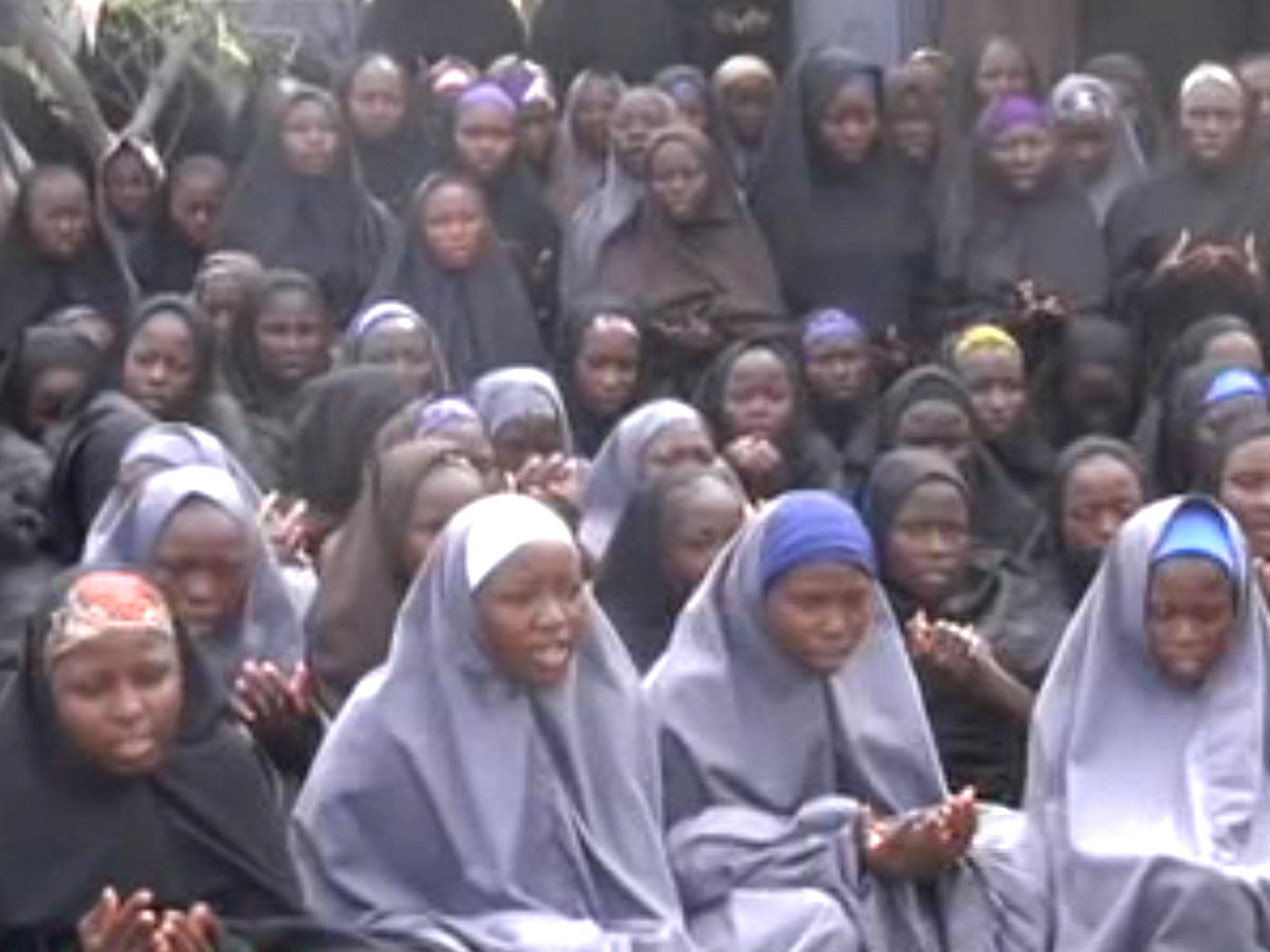Kidnapped schoolgirls set for release after deal struck with Boko Haram
Nigeria claims girls’ freedom is part of ceasefire agreement with militant group

The Nigerian government announced last night that it has agreed a deal with the militant group Boko Haram for the release of more than 200 kidnapped schoolgirls.
Their release is part of a ceasefire deal agreed between the militants and the Nigerian authorities at three days of secret talks, reportedly held in Saudi Arabia and mediated by Chad.
Air Chief Marshal Alex Badeh, the head of Nigeria’s military forces, announced last night: “I wish to inform this audience that a ceasefire agreement has been concluded.”
Mike Omeri, a government official, confirmed that the deal included the release of the girls and other people held prisoner by the group. Boko Haram has, he said, given them assurances “that the schoolgirls and all other people in their captivity are all alive and well”.
Last night it was not clear what concessions had been made on behalf of the government of President Goodluck Jonathan to secure the release of the Chibok schoolgirls. Marshal Badeh is already reported to have issued an order to his forces to “comply with the ceasefire agreement between Nigeria and Boko Haram in all theatres of operations”.
Danladi Ahmadu, the self-proclaimed “secretary-general” of Boko Haram, which has wreaked five years of havoc in Nigeria, told the Voice of America website that a ceasefire agreement had been reached.
A Nigerian presidential aide, Hassan Tukur, was quoted by the BBC as saying Boko Haram had announced a unilateral ceasefire and the government had responded. “They’ve assured us they have the girls and they will release them,” he said. “I am cautiously optimistic.”
Both domestically and internationally, President Jonathan has been pilloried for his sluggish response to the kidnapping, and for his seeming inability to quell the violence from the Islamist militants who control swathes of Nigeria’s north-east.
This week a group of British politicians and a general called for the UK to help Nigeria fight the militants.
Boko Haram has killed thousands of people in its attempt to create an Islamic caliphate. It has indiscriminately targeted civilians, bombing markets, bus stations, government buildings, churches and even mosques.
A senior Nigerian security source confirmed the existence of the talks, but told Reuters it was unclear whether the negotiations were taking place between Boko Haram’s self-proclaimed leader, Abubakar Shekau, or other factions within the group. “Commitment among parts of Boko Haram and the military does appear to be genuine. It is worth taking seriously,” the source said.
Several rounds of negotiations with Boko Haram have been attempted in recent years but they have never achieved a peace deal, partly because the group has so many different factions. “There are some talks but it depends on the buy-in of the whole group. I would be surprised if Shekau had suddenly changed his mind and is ready for a ceasefire,” the source added.
The Nigerian military said Shekau was killed in August 2013. But earlier this month a video was released purportedly showing Shekau dismissing rumours of his demise.
Even as the supposed ceasefire emerged last night, it was claimed that eight Cameroon soldiers and 107 Boko Haram militants had been killed in fierce fighting in the far north of Cameroon yesterday.
Join our commenting forum
Join thought-provoking conversations, follow other Independent readers and see their replies
Comments
Bookmark popover
Removed from bookmarks